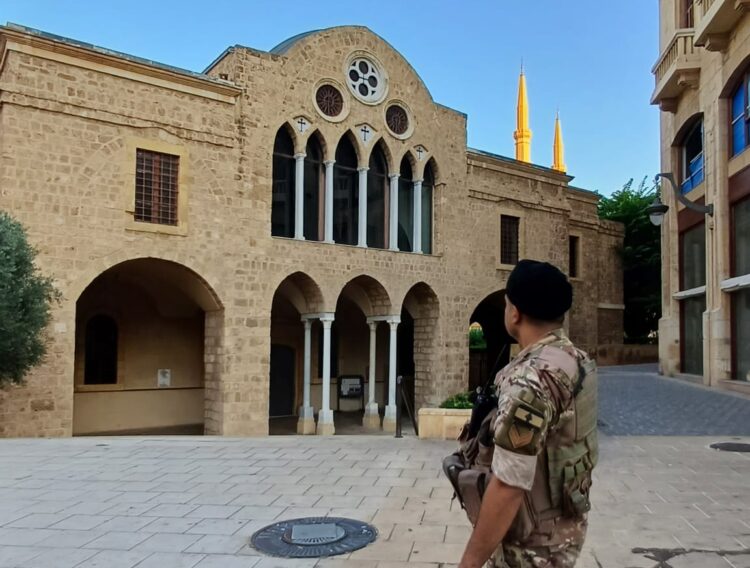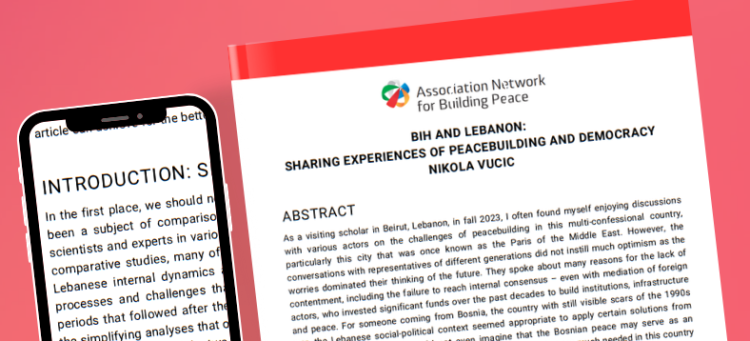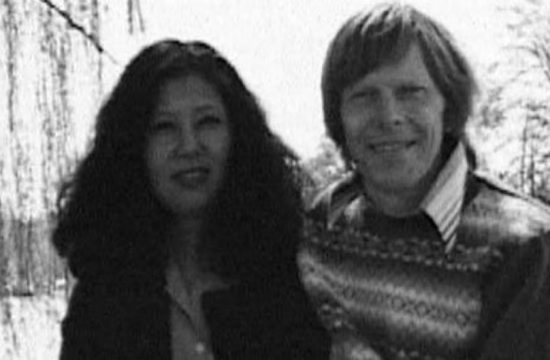
What do Lebanon and Bosnia and Herzegovina have in common - two countries that, each in their own way, struggle to achieve sustainable peace within their borders? Pročitaj više
This complex question delves into two different contexts – one in the Balkans and the other in the Middle East, and is discussed in the essay ‘Experiences of Peacebuilding (2023-2024)’. The environments of these countries make the biggest difference in their current challenges and perspectives.
“For someone coming from Bosnia and Herzegovina, a country with still visible scars of the 1990s war, the Lebanese socio-political context seemed suitable for applying certain solutions from Bosnia and Herzegovina. I could not even imagine that the peace in Bosnia and Herzegovina could serve as an inspiration for thinking about changes in Lebanon, changes that this country desperately needs,” journalist Nikola Vucic wrote about his impressions during his stay in Lebanon.
He noted that, with the exception of a few successful comparative studies that treat these two countries, many took a reductionist approach to the internal dynamics of Bosnia and Herzegovina and Lebanon and their historical layers, thus simplifying the complex processes and challenges that these countries and societies went through, especially in the periods following the conflict at the end of the last century.
The Lebanese War was not only an internal conflict; it involved a range of regional and international actors, as the essay says: this war concerned the matters that dominated the Middle East regional politics of the second half of the 20th century, including the Palestine-Israel conflict, the Cold War competition, Arab nationalism and political Islam. The Lebanese Civil War was one of the most destructive conflicts of the 20th century.
“In addition to a large number of victims, most of Lebanon's infrastructure was destroyed, as well as Lebanon's reputation of being an example of coexistence in the Arab Middle East,” it said.
Peace deals in these countries – the Dayton and the Taif agreements – ended the wars, but in the case of Lebanon, discontent often escalates due to the fact that the country is institutionally paralysed and unstable in terms of security, while the national currency has hit rock bottom.
The area around Baalbek, in Lebanon's Beqaa Valley, is known as the political stronghold of Hezbollah, which supports Iran. There are fears that Lebanon could be drawn into the war, and the international community does not underestimate the role and power in that country.
Bosnia, contrary to Lebanon, is a European country and its European integration path is an internal consensus. On the other hand, Lebanon is a Middle East country with history and geopolitical interests that confront each other, which adds more complexity to its internal search for peace; because Lebanon is the place where influence is pursued both by the Western centres of power on one side and, for instance, Iran on the other side – the country which is not likely to be a part of a solution together with the west in current circumstances.
The paper, published on the website of the Association Network for Building Peace as a part of the author's work on the topic of the Experiences of Peacebuilding and Alternative Solutions, supported by the CPCD within the Smart Balkans Initiative, examines the potential of applying the Bosnian experience in peacebuilding, particularly focusing on essential reforms to address governance challenges.
Comparing the conflicts in both countries, the article highlights common points in their struggles with identity politics and post-conflict recovery. In addition, the author analyses the role of international intervention, especially the high representative in Bosnia and Herzegovina, as well as the questions whether Lebanon could benefit from a similar mechanism.






Kakvo je tvoje mišljenje o ovome?
Budi prvi koji će ostaviti komentar!